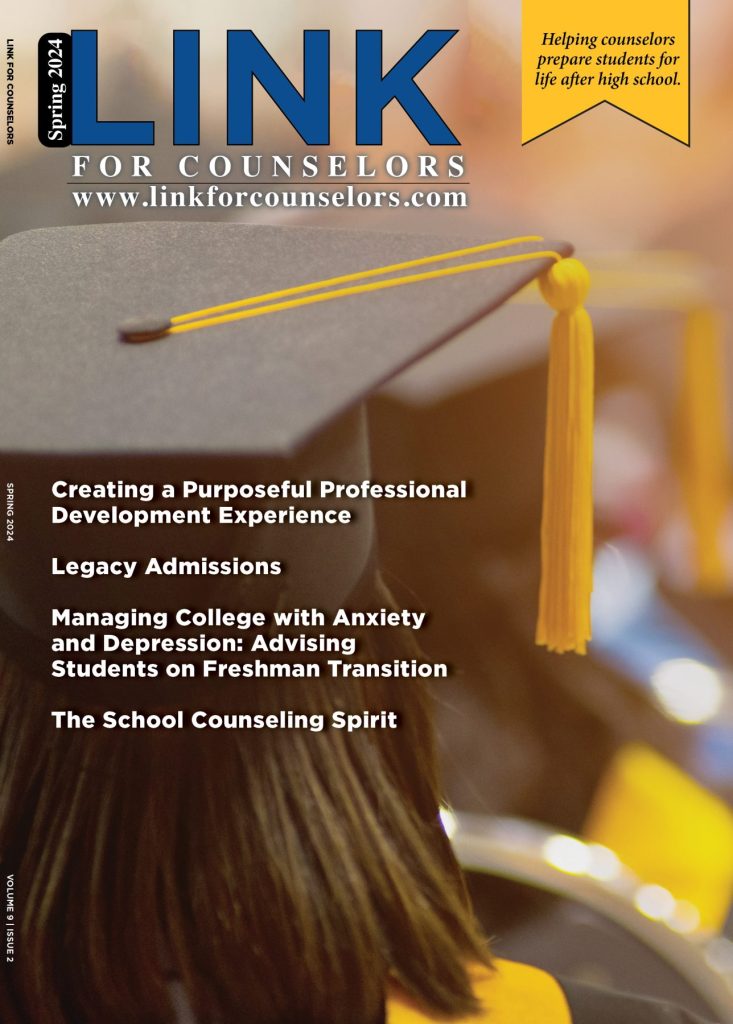Love and the career search
Many of your students probably can’t settle on a career path, and several who have chosen a direction perhaps have based it on misinformation or a whim. Probably several haven’t even thought about it yet.
But maybe you can help.
Some experts believe high school juniors and seniors just aren’t prepared to make a decision about what they want to do for a career – prompting an interest in gap years and liberal arts education or at least a freshman year where they don’t have to decide.
Nonetheless, it is likely that you will be talking to students about their choice of careers in connection with discussions about picking a college or a major. Plus, they’ll be getting pressure about their intentions from peers, parents and that uncle asking the inevitable “so what do you want to do” question.
Here are three ideas you might want to pass along.
Forget the love. Young people are often told to find a career they love, but some experts suggest kids should not feel bound to that thinking, such as author Miya Tokumitsu in her book “Do What You Love and other Lies about Success and Happiness”. It can pressure young people into unsatisfying jobs and incorrectly defines work, she says.
Mark Cuban, the famous businessman and sports team owner, has a blog post where he suggests that you shouldn’t “follow your passion” and instead choose an interest and work hard (passion comes later), and career expert Penelope Trunk notes that we are each “multifaceted, multilayered, complicated people,” who probably don’t have one thing we love, or may not be able to identify it.
Some students will have a passion, but most will just have an interest or may not have a clue yet, and expecting to discover a dream career in high school may keep them from freely and easily exploring options.
Push research instead. Get them excited about investigating their options and overlooking the pressures and the hype about a perfect job. Show them it should be intentional but fun. Tell them to think about lifestyle and money and what they enjoy.
- They should keep an open mind and not simply explore careers that they’ve always dreamily had in their heads or that others have recommended.
- If a field simply sounds interesting at all, tell them to follow up. There are plenty of places to check them out, including college Web sites. Tell them to have fun looking.
- They can easily ask other people about their jobs, even shadowing someone for a day (or a few hours) or just asking questions. Internships are even better.
- There are assessments that use the Holland code for personality types linked to potential careers, and O-Net from the US Department of Labor has an extensive career center and career suitability tests. Companies like Truity offer a variety of personality and career tests, including a free Holland-based assessment.
- They might ask a teacher or someone else who knows them well or has worked with them. Tell them to ask that person “what job would you hire me for if you were a boss?”
Or fake it. To relieve some of the pressure, you might tell young people they can just say “I’m interested in …” and fill in the blank with just that: something in which they are interested. Often it is very stressful to be asked that inevitable question by that uncle and not have an answer.
Remind your students that most people don’t work in the fields they began college majoring in, and that there is time to change and options such as gap years and undecided status.
James Patterson has written broadly on career exploration, academic success and other education related topics for several national and trade publications. He is also a school counselor, and was named ‘counselor of the year’ in Montgomery County, MD, a large Washington DC area district.




